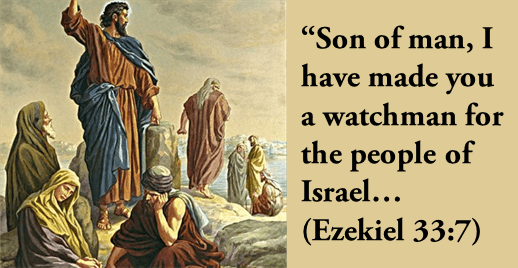My current writing project is “The Prophets of the Bible”.

Having earlier focused in leading Bible studies at my church on Elijah, Elisha, John the Baptist, Enoch, Moses, Balaam, Deborah, Samuel, Nathan, Micaiah, one unnamed prophet, and two of the major prophets: Isaiah, Jeremiah, it was the turn last night for Ezekiel, with Daniel and the twelve minor prophets still to come. See here for my Ezekiel the prophet presentation that went with the first of five Ezekiel studies. While this is a result of my own studies, I am grateful to many folk who have given me insights and the Internet.
I confess from an early age being fascinated by the Old Testament prophets, whose prophetic contributions play a significant part in the Bible message. Notably, there is not many to choose from in the New Testament as the focus changes from Israel to the Church. Their ministries were amazing and they often had to pay a high price for being God’s spokespersons. Besides deprivations, attacks and abuse, often their words fell on deaf ears. What they said and did was not only highly significant for the time and situation they found themselves in but we can draw valuable lessons for today. That is certainly so with Ezekiel even though he is not much studied in church circles and his writings are typically seen as rather heavy going. with lots of warnings of judgment to come. But he also presented a message of hope and mercy, with God in control and with things happening to declare his glory. While, with many of his prophesies, Ezekiel lived to see these fulfilled, some happened after his death; some, e.g. to do with a messianic age, are yet to happen.

Last night’s study focused on context. For example, Ezekiel wrote while exiled in Babylon as a result of major political upheavals by Judah’s powerful neighbours and those seeking its demise, but more importantly the judgment of God due to its rebellion, and not just Judah but the nations that had been oppressing it (the ten tribes of Israel were taken into captivity a hundred years earlier). The defining event for Ezekiel was not being exiled to Babylon aged twenty-five but concerned the destruction of the Temple in and city of Jerusalem, but after that happened there was a message of hope and a promise to return to its land and, in an undefined future, of messianic blessing. Ezekiel was appointed a watchman. Today with all that is going on we need watchmen who see what is happening around them and who will faithfully proclaim God’s word not beholden to gaining fame, fortune or popularity, even though the future may not be ours to know. What Ezekiel was told when listening to what God was saying to him, was what God was doing was in order for his people and the nations to know that He is Lord.

